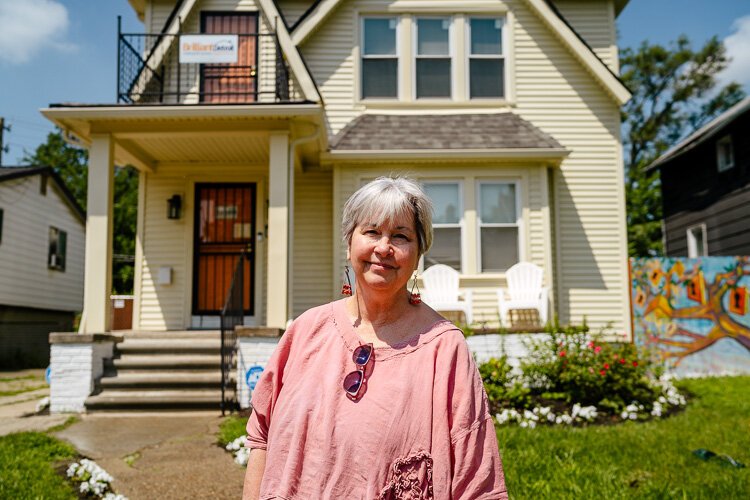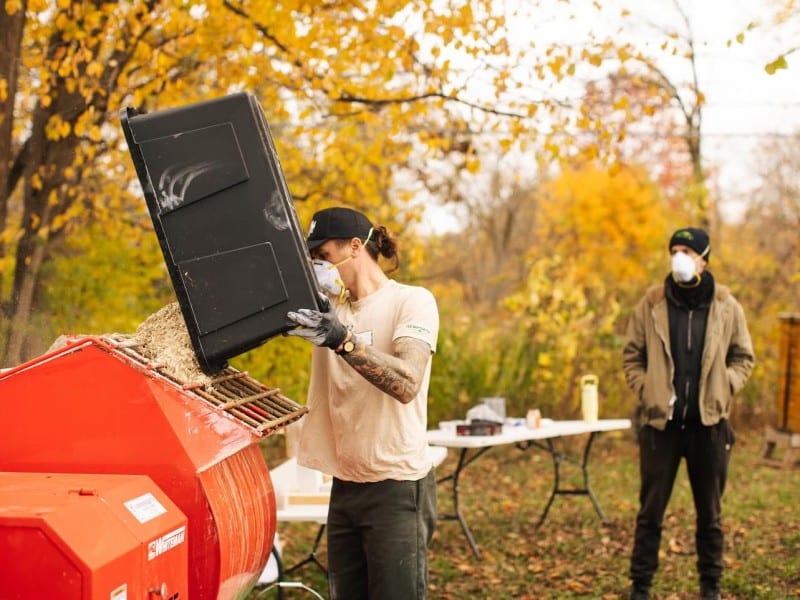Brilliant Detroit focuses on staying connected to the families it serves through the pandemic
And importantly, not-for-profits, and Brilliant Detroit in particular, is set up to serve people and build relationships. And for us, relationships have been able to stay at the forefront of what we do, and it is the reason we were able to carry on right now and actually serve people.

COVID-19 has totally exposed weaknesses across the board. And in particular, it’s impacted the not-for-profit industry, and how they do work and what they can do.
And importantly, not-for-profits, and Brilliant Detroit in particular, is set up to serve people and build relationships. And for us, relationships have been able to stay at the forefront of what we do, and it is the reason we were able to carry on right now and actually serve people.
Brilliant Detroit has houses in the middle of neighborhoods that we’ve converted into community gathering places where we provide education, health, and family support for families with kids 0-8. We work to assure kids are ready for kindergarten and reading a grade level. At the forefront of everything is relationships and connection. And that has allowed us to continue even as the community’s needs increased significantly.
What we found right out of the gate, is that what people needed — as much as supplies and support — is they needed somebody to talk to about what to do and where to go. So we pivoted to use our relationships. We called every single family we work with every week. We served 7000 people. And from there we were able to have a really good pulse of what people were feeling, and how they were feeling.
And in that, we found people needed more of a schedule for their day working with kids. And they also needed a lot of support. In particular, for us, that was with new moms or pregnant women.
So the question is — how do you serve in this crazy time, and really how does that impact us organizationally as a not-for-profit? We were fortunate because we set up a fund that stays in place for any issue that might happen — and we certainly didn’t predict COVID — but that helped us carry forward and not have to lay anybody off.
Those that we serve needed more connection, but so did those in our organization. I started to write a daily email to everybody that they asked me for. It’s really about being there for each other. What I would say is, one day you need to be lifted up, and one day you need to lift somebody else up. Our staff is centered in Detroit. Many of our staff members have lost a close family member to COVID-19 or a friend, from one to 17 people.
We have been able to activate more people who are willing to do virtual tutoring for kids and provide more donations of goods for babies. We put together a porch drive where on 50 porches we picked up brand new items for babies and moms. We were part of a giving campaign where we were able to give $500 to 650 families. And what struck me in that, is the stories are very hard. Stories like I lost my husband three weeks ago and I lost my job because of COVID. What do you do with that? That wasn’t an isolated case, and $500 made all the difference. But what also made the difference was somebody to talk to, to feel like somebody was there to feel that there was a caring world.
So what has changed for us is that we can’t predict day-to-day. It’s an unpredictable environment, and that, for your team and for people you work with, is difficult. Right. Out of that can come new ways to do things, new ways to care, new ways to show what matters. We’ve added more things like food distribution and helping with basic needs that were there before but not to the level that they are now needed.
And what hasn’t changed for us is a deep commitment to helping people where they are now. We’ve worked so hard on how to stay connected, that’s helped inform us. And truly, every week it’s been different, what people need and what they’re feeling.
And so in all of this, it’s been a really tricky and tough time. It’s definitely highlighted what’s not working in systems, but it is also an opportunity — and I think we have to take this opportunity — to build the muscle of connection and care. That’s what’s needed.
It was great that many funders did pivot and helped with COVID funding. But this is not just a short term, this is a new way for us. We are not returning to an old way. There’s nothing wrong with having a new way because what we really need to do is figure out ways that we can be connected, serve communities, serve each other, that are unique and focused on where we are at whatever moment.
Cindy Eggleton is the Executive Director of Brilliant Detroit. Stay tuned for her next entry in our Nonprofit Journal Project, an initiative inviting nonprofit leaders across Metro Detroit to contribute their thoughts via journal entries on how COVID-19 is impacting the nonprofit sector — and how they are innovating. This series is made possible with the generous support of our partners, the Michigan Nonprofit Association and Co.ACT.




